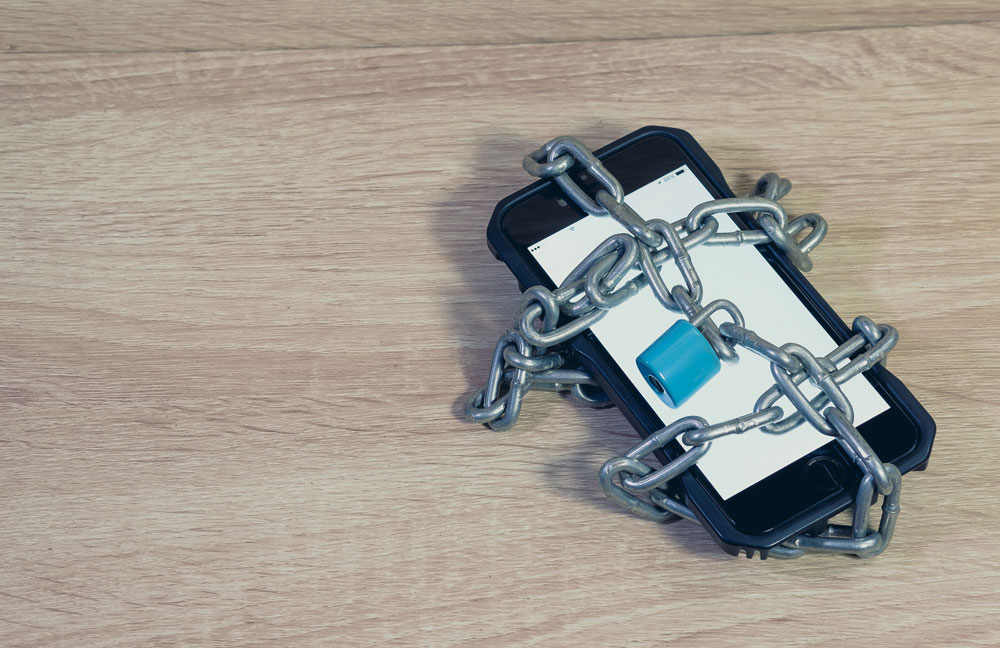Our lives these days revolve around our electronic devices. Each day, we spend hours online in front of a screen. We constantly receive information and demands for our attention. Although this access to technology helps us be productive and stay informed, it also has several disadvantages:
- A 2018 compilation of statistics on the effect of digital technology on our lives indicates that, out of the one-third of the world population that has access to internet, an estimated 210 million people suffer from internet and social media addictions.
- Artificial light from screens suppresses the sleep hormone melatonin and leads to insomnia.
- Heavy internet users are 2,5 times more likely to be depressed.
- The more time someone spends on Facebook, the more they feel dissatisfied with their life. Seeing friends enjoying nights out or on vacation, combined with often unrealistic brand messages, makes people feel like they are missing out while others enjoy life, and promotes feelings of low self-esteem and inadequacy.
- Always being available on the phone causes stress, particularly feelings of guilt for not instantly replying to messages.
- Large amounts of time spent behind laptops and on mobile phones can negatively affect back, neck, and eye health.
- Constant connectedness distracts from personal interaction and affects personal and business relationships.
- Observing news from behind a screen decreases human empathy and has a negative impact on performance and mood.
Digital detox
The realization of the negative effects that our tech habits can have on our daily lives, has led to a new trend: the digital detox.
Travel agencies are offering digital detox holiday packages. Ironically, an increasing number of apps and gadgets that can actually help you detox digitally are becoming available. France has gone as far as implement a law establishing workers’ “right to disconnect” whereby companies with more than 50 employees must establish hours when staff should not send or answer emails.
Consider making regular digital detoxes a part of your overall wellness goals. Make a conscious decision not to go online or use connected devices for a set period of time. Some of the advantages of a digital detox are:
- Personal time and focus: A digital detox provides a break from everything that your devices expose you to and allows you to pay more attention to your thoughts, feelings, goals, and environment.
- Improved relationships: Placing your full focus on the person next to you rather than a screen will make them feel valued and positively influence your relationship.
- Greater happiness: A break from the flow of, often unrealistic, social media and brand messages can reduce any anxiety these messages may cause you.
- Reduced stress: Without the constant calls and alerts, you can slow down and relax.
- Improved health: Even if just for a few days, a digital detox removes the stress placed on your eyes, neck, and back.
- Better sleep: No exposure to the light emitted by screens halts its interference with the production of the sleep hormone melatonin and leads to better sleep.
- Increased productivity: A pause in checking emails, social media, and responding to text messages enables you to prioritize and focus.
How to do a digital detox?
- Plan for it: Choose the best time. Consider a weekend or holiday.
- Make arrangements: Let your family, friends, and colleagues know you plan to disconnect so they don’t worry if they’re not able to reach you.
- Decide how you will spend your time: Choose an activity that you will enjoy doing. You may choose to go on a trip, spend time with friends or family, or enjoy nature.
- Motivate yourself: Note the reasons why you choose to digitally detox so that you can remind yourself if you are tempted to stop.
Improve your wellbeing by regularly disconnecting from your electronic devices and embrace your new-found peace!

